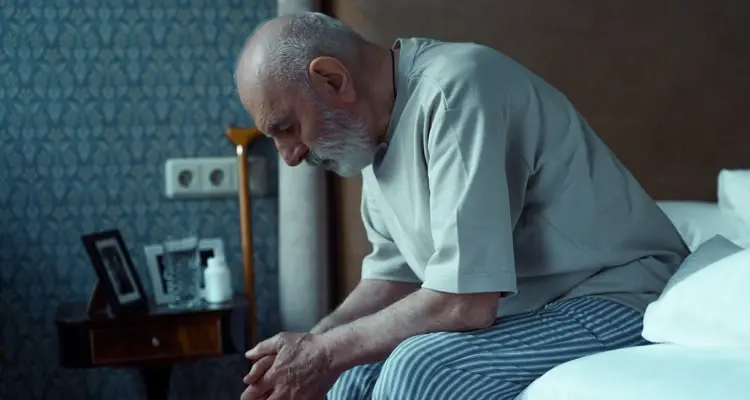
Post-Traumatic Stress Disorder (PTSD) is a mental health condition that affects individuals of all ages, including older adults. While often associated with military veterans and survivors of traumatic events, PTSD can arise from any distressing experience. In this blog, we will explore PTSD specifically in older adults, examining its signs, symptoms, and available treatments. Understanding the impact of PTSD on older adults is crucial for providing appropriate support and care to this vulnerable population. By recognizing the unique challenges faced by older adults with PTSD, we can facilitate their healing and improve their overall well-being.
Understanding PTSD
PTSD develops after a person has experienced or witnessed a traumatic event. Traumatic events encompass a range of occurrences such as physical or sexual assault, accidents, natural disasters, war, or other life-threatening situations. Older adults may develop PTSD as a result of the traumatic events they have encountered in their lives. It’s important to understand that PTSD is not a sign of a personal flaw or weakness; instead, it is a natural reaction to an overwhelmingly distressing experience.
Symptoms of PTSD in Older Adults
Symptoms of PTSD in older adults can manifest differently compared to younger individuals. It is essential to recognize these signs to provide appropriate care and support. Some common symptoms of PTSD in older adults may include:
- Flashbacks or intrusive memories of the traumatic event
- Nightmares and sleep disturbances
- Avoidance of places, people, or activities that remind them of the trauma
- Hyperarousal, including being easily startled, irritable, or having difficulty concentrating
- Emotional numbness or feeling detached from others
- Social withdrawal or isolation
- Physical symptoms such as stomachaches, headaches, or muscle tension
Diagnosing PTSD in Older Adults
Diagnosing PTSD in older adults can be challenging as the symptoms might be mistaken for other age-related conditions or attributed to the natural process of aging. Healthcare professionals should remain vigilant about the possibility of PTSD in older adults and perform comprehensive assessments to ensure accurate diagnosis and appropriate treatment. This may involve reviewing medical history, conducting interviews, and utilizing validated screening tools to help identify the presence of PTSD.
PTSD Treatment Options
Treating PTSD in older adults often involves a multidimensional approach that considers their unique needs and circumstances. Some common treatment options include:
- Psychotherapy: Evidence-based therapies such as cognitive-behavioral therapy (CBT) and eye movement desensitization and reprocessing (EMDR) can help older adults process and cope with traumatic memories.
- Medication: Antidepressants or anti-anxiety medications may be prescribed to alleviate symptoms of PTSD, such as depression, anxiety, or insomnia.
- Support groups: Engaging in support groups specifically tailored for older adults with PTSD can provide a sense of community, validation, and shared coping strategies.
- Lifestyle modifications: Encouraging healthy lifestyle habits, such as regular exercise, sufficient sleep, a balanced diet, and sufficient sleep, can support overall well-being and enhance resilience.
Support and Coping Strategies for Older Adults with PTSD
Older adults with PTSD can benefit from various support and coping strategies, including:
- Establishing routines: Creating a structured daily routine can provide a sense of stability and control, reducing anxiety and stress.
- Engaging in relaxation techniques: Practicing deep breathing exercises, meditation, or mindfulness can help manage stress and promote emotional well-being.
- Seeking social support: Encouraging older adults to maintain connections with loved ones, friends, or support groups can provide emotional support and alleviate feelings of isolation.
- Engaging in pleasurable activities: Encouraging participation in enjoyable hobbies or activities can promote positive emotions and serve as a distraction from distressing thoughts.
- Prioritizing self-care: Encouraging older adults to engage in self-care activities, such as maintaining good physical health, getting enough rest, and engaging in activities that bring joy, can contribute to their overall well-being.
Senior Counseling for PTSD
Blue Moon Senior Counseling understands the unique challenges older adults face with PTSD. With a team of experienced and compassionate therapists, they offer specialized counseling services tailored to the needs of older adults. The therapists at Blue Moon Senior Counseling are well-versed in evidence-based therapies for PTSD and provide a safe environment for individuals to process their trauma and develop effective coping strategies. Individual counseling sessions help older adults navigate their healing journey and find renewed hope for the future.
PTSD is a significant mental health concern that can affect older adults who have experienced traumatic events throughout their lives. Understanding the signs and symptoms of PTSD in older adults and implementing appropriate treatment options and support strategies is crucial in helping them navigate their journey toward recovery.
Blue Moon Senior Counseling provides a valuable resource for older adults seeking professional assistance, offering specialized counseling services to address the unique needs of older adults with PTSD. With the right support and compassionate care, older adults can find healing, resilience, and renewed hope for the future.










